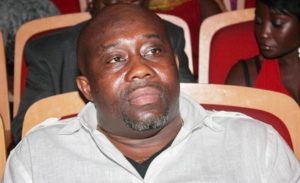 Accra, May 27, 2017 – The wanton spate of corruption, abuse, waste and other financial malfeasance in Ghana’s public service institutions is becoming alarming.
Accra, May 27, 2017 – The wanton spate of corruption, abuse, waste and other financial malfeasance in Ghana’s public service institutions is becoming alarming.
For instance, recently three high-profile corruption cases involving senior officials of the National Communications Authority (NCA), Public Utilities and Regulatory Commission (PURC) and the Ghana Standard Authority (GSA) have been uncovered by the Ghanaian media.
Below are the cases
NCA
According to the media reports, senior officials of the erstwhile John Mahama government are being by the country’s Bureau of National Investigations (BNI) for allegedly taking a whopping $4 million from the accounts of the NCA) . They failed to account for the money and used it for their own benefits.
The three former officials in this disdainful act are- Eugene Baffoe-Bonney, former Board Chairman of the NCA; William Tevie, former Chief Executive Officer of the NCA; and Alhaji Osman, former Deputy National Security Coordinator. They were aided by a private citizen, George Oppong in the act.
The Minister of Information, Mustapha Hamid told Joy FM, an Accra-based radio station that the previous government contracted NSO Group Technology Limited, an Israeli company, to supply listening equipment at the cost of $6 million, to enable the authorities to monitor conversations of persons suspected to be engaged in terror activities.
The Israeli company’s local agent, Infraloks Development Limited, was also charging $2 million to facilitate the transaction, bringing the total sum to $8 million.
Mr. Hamid explained that the NCA was procuring the listening devices for the National Security because the National Security didn’t have the money to fund the transaction. By law, the NCA has supervisory jurisdiction over the use of such equipment and was asked to fund the project.
But the laudable project was turned out to be a milking-cash-cow for the former senior NCA officials and their chief conspirator. To this end, They withdrew $4 million from the accounts of the NCA and paid $1 million into the accounts of the Israeli company.
While the remaining $3 million was lodged in the accounts of George Oppong, who acted as a representative of the local agents, Infraloks Development Ltd. The entire deal was fronted by Alhaji Osman, according to Mr Hamid.
According to the briefings from the BNI, there is no record at the NCA indicating any meeting was held and a decision as such was reached to undertake such transaction thereby raising suspicion.
Shortly after the then governing National Democratic Congress (NDC) lost the elections to the current government New Patriotic Party (NPP), the Israeli company approached the new government for payment of the remaining $5 million owed it by the state.
Fortunately, the state investigated the transaction found out that the Israeli company and its local agent, Infraloks Development did not deliver the such listening devices.
Further investigations by BNI “led to the retrieval of some equipment from a private residence purported to be listening equipment”.
“They took Four Million Dollars from NCA accounts and paid One Milion [Dollars] to Israeli company and then deposited Three Million in the accounts of the local agent, one Mr George Oppong and proceeded to share the three million dollars among themselves”, the information minister explained to Joy FM.
The Information Minister gave a breakdown of how the remaining $3 million was allegedly dissipated: “Mr. Eugene Baffoe-Bonney took $200,000; George Oppong took $100,000; William Tevie got $150,000, Alhaji Osman received $70,000,” with one other person receiving $500,000.
Meanwhile, all the persons involved except Alhaji Osman, have admitted to taking the money and have been granted bail after the BNI took their statements, the minister said. He added the whereabouts of Alhaji Osman, said to be the key architect of the deal, is unknown.
“The security personnel have virtually combed everywhere in the country including his village, but cannot locate him”. While George Oppong according to the Minister, has refunded $1 million back to the state. Also Baffoe-Bonney pledged to pay a deposit of $40,000 back to the state as at last week. The rest have promised to pay what they wrongfully earned, back to the state coffers.
Ghana Standards Authority
Another media investigative reports which alleged that former Executive Director of the Ghana Standards Authority (GSA), Dr George Crentsil received a $1.2million kickback from a contractor.
Lemet Construction Company is said to have worked on a new block of the Standards Authority Training School at a cost in excess of GHC15 million.
The contractor did not state why he gave out the money but the report indicates Dr. Crentsil admitted receiving the cash.
According to the report submitted by the board of directors of the Ghana Standards Authority to the then Trade Minister Dr Ekwow Spio Gabrah, Dr George Crentsil took $1 million from the contractor working on the GSA training school on one occasion.
On another occasion, he took $200,000.
A part of the report reads, “The Executive Director admitted taking money from the contractor but refused to state how much, stating it was a sensitive matter.”
On July 2012, the Ghana Standards Authority awarded the GHc15.2 million contract to Lemet Construction Company to build a new training school and hostel facility for the Ghana Standards Authority in Accra.
The contractor, Johnson Teye, failed to meet the deadline for completion of the project due to lack of funds. The board raised questions about the delay.
The then Trade Minister Dr Spio Gabrah ordered an investigation into the contract based on an anonymous letter from a management member of the Authority.
Dr Gabrah would not go on record but tells Joy News “after I received the first anonymous letter, I called the executive director of Ghana Standards Board and quizzed him on the complaints. But, when I received the second letter, I directed the board to investigate the matter.
I, however, wasn’t able to take action because the report was submitted when I was leaving office.”
The Board Chairman of the GSA, Amadu Sorogho said: “A committee was set up under at the instance of an authority. We finished our work, as the chairman, we read it; we confronted people that we needed to confront and we sent it with a covering letter to the appropriate authority with the recommendations”.
The report revealed that the contractor provided materials and personnel to complete a three bedroom storey building for Dr. Crentsil at East Legon, a suburb of Accra. A claim he denied.
PURC
The BNI is also busily investigating the Public Utilities Regulatory Commission (PURC) following a petition to the Chief of Staff by the workers detailing allegations of financial impropriety, victimization and cronyism.
The Executive Secretary Samuel Sarpong and Head of Public Affairs Nana Yaa Jantuah. At time of going to the press, 18 other employees have so been invited by the BNI.
It emerged that between 2013 and 2015, the PURC collected monies from utility companies to organise public meetings after huge increases in tariffs had incensed clients.
The monies were paid in cash to PURC officials, a senior ECG staff has said. The collection of monies has been criticised as inappropriate – it is wrong for a regulator to collect monies from the regulated.
The monies were collected in 2013 and 2015 from utility companies which according to the PURC was to fund nationwide public meetings on controversial reviews of utility tariffs.
Some of the monies were paid in cash to officials of the PURC, according to insiders at the commission.
After the monies were raised, more than GH¢470,000 was paid into the personal account of its Executive Secretary Samuel Sarpong
Also, questions have been raised about a sole-sourced contract with US-based IT firm in which an amount of $400,000 was paid to the firm for software and ancillary services without collecting withholding tax in breach of section 84(2) of the Internal Revenue Act (Act 592).
The above corruption cases are not the only ones. Many of such cases are abound in the country’s public sector. The huge amounts being pocketed by the individuals could have used to provide social amenities for citizens some parts of the country.
Indeed, the Auditor-General of Ghana, each year submits a report on all Ghana public offices, including the courts, the central and local government administrations, of the universities and public institutions of like nature, of any statutory corporation or other body or organization established by public enactment or otherwise set up by public funds.
Sadly, in each year’s report over the last couple of decades the Auditor-General has drawn Ghanaians attention to cases of fraud, abuse and waste in the public services of Ghana. Because of these the country’s annual rankings on the Transparency International’s corruption perception index is not encouraging.
Types of fraud, abuse and waste
It is hoped that knowledge of the types of fraud, abuse and waste, how they occur and in what areas will lead public servants to a better admiration of what, in a sense, constitutes the Achilles heel of the system.
Such knowledge and understanding should form the basis of reflection on what has to be done to check the rot which threatens to poison the entire system completely.
Wages and salaries fraud
In Ghana, wages and salaries account for a greater percentage of expenditure in all public organizations, with some organizations spending exponential on administration and less on development.
The reports of the Auditor-General express misgiving that fraudulent wage and salary payment also add up to the total wage bill in the public sector.
According to the reports, fraud, abuse and waste occur in several instances because of low ethics in business and public administration, including the general lack of a system of internal checks, absences of effective pre-audit of pay documents, and lack of coordination between personnel and account sections within the same organization.
Furthermore, there has no lack of ingenuity on the part of some public servants to take advantage of these weaknesses. Some public servants in Ghana are known to have been able to collect monthly salaries on two separate payment vouchers by signing one and thumb printing the other.
Others have been able to collect monthly salaries concurrently at two different stations of the same agency. And still other have collected double pay, but from two different organizations within the public service. Those who have either directly manipulated the system to their personal benefit or indirectly benefited from the weaknesses include all types of public servants.
In his book, entitled “Ethics in Business and Public Administration”, Samuel Woode added that exploitation of these weaknesses has further made it possible for salaries to be paid over long periods of time in respect of staff known to have resigned, retired, dismissed, or on leave of absence without pay.
A serious variation of the phenomenon is the payment of salaries to “ghost accounts” of “ghost workers” and fictitious names. This is the practice of inserting on the payroll, names of “ghosts” that is, non-existent workers, getting opened for them bank accounts in to which salaries are paid and subsequently misappropriated.
Misapplication of loans
To facilitate the efficient and expeditious discharge of their duties, senior public servants enjoy a loan facility which helps them to purchase their own private means of transportation. However, this facility has been subjected to all types of abuses. There have been those who have not used their car loan for the intended purpose for which the loan was given.
Some officials of the public services have purchased vehicles, using government facility, and within a few months sold their cars at a profit, but refused to settle their indebtedness to the government.
Some public servants have taken loans to purchase vehicles originally registered in their names, and while others have taken fresh loans to purchase cars when previous granted loans have not been repaid.
This ungodly act is practiced by the junior public servants too. This is a pointer to the wise saying that “birds of the same feather flock together”.
Some junior and lowly placed public servants have also been guilty of misapplying loans granted them for the purchase of cycles and motor cycles.
Inventory control and property management
At 60 years of Independence, Ghana has no national assets account to know the number of the country’s physical assets, including cars, office computers, printers and furniture.
Poor record keepings, inadequate control over stores, poor store accounting and lack of computers to store valuable information, have been identified as the problems facing storekeeping in the public services in Ghana.
These lapses and loopholes have made it easy for government property to be subjected to abuse and waste.
The Auditor-General’s reports show how items, including refrigerators, gas cookers, water closets and washbasins issued from government stores ostensibly for official residences are diverted to private homes.
It is pathetic to know that, inventories maintained for official residences have not been revised when additional items have been acquired for the residences, making it easy for the occupants to claim public property as their own.
Cash control
Theft or embezzlement has been the most frequent type of fraud, abuse and waste in the area of cash control. The Auditor-General’s reports have always been full of cases of paymasters misappropriating or embezzling wages of workers.
There have been several instances of revenue offices or collectors in organizations and local councils not paying in monies collected. Treasurers of local authorities and registrars of courts and traditional councils have often been found guilty of embezzlement of public funds.
Measures to fight corruption
Ghana’s President Nana Addo Dankwa Akufo-Addo has always maintained that he will prosecute corrupt public officers despite attempts by some officials to use his wife to plead on their behalf.
“Once you are found guilty, you will be prosecuted, he said to a loud applause by the Ghanaian community in Sierra Leone recently.
“When people get caught up in the net, I am imploring people not to come to me and say that Oh! Nana, this man is my relative, so spare him”. That is the problem in Ghana.
“You find people going to speak to your wife with the hope of trying to influence you,” he stated, adding, “I am not going to listen to that because my concern is Ghana and not one or two individuals.”
He, therefore, urged Ghanaians to help him in the fight against corruption, “so that we can put that Ghana behind us, and get a new deal for our country.”
According to him, the recent news of the arrest of some Customs officials responsible for the loss of some GHS1.2 billion in revenue to the state is part of the efforts his government is making to block revenue leakages at the country’s ports.
“That money was going, not into the government’s coffers, but into private pockets. We have importers who evade duty because they split the duty with customs officials. It cannot continue like that in Ghana,” the President said.
“I want to assure you that, so long as I have the opportunity, and I have breath and power, I am going to do something about it, so we can stop the leakages. I know that if we stop the leakages, we will have the money to do our own development.
“We are not going to be dependent on some people coming to say they are going to give us charity or grants. We will finance our own development ourselves,” he continued.
Reiterating his commitment to depoliticise the prosecution of corruption in Ghana, President Akufo-Addo stated that “we are going to create the Office of Special Prosecutor, who will not be a creature of the government but will be an independent person who will have the power to decide who to prosecute. So it will not be Akufo-Addo, but it is the law that is working.”
Previous prosecutions carried out by the Attorney General have been characterised by accusations of “witch-hunting” by political opponents.
The President assured that in the next meeting of Parliament, the House will expedite the setting up of the Office of Special Prosecutor and “hopefully, by the second half of this year, the office will be up and working.”
“We want to turn a new page in the history of our country. We are a rich country. I refuse this idea that Ghana is poor. I will not accept the language that Ghana is poor.
“Ghana is not a poor country. Ghana is a rich country, and we want to make it a rich country once again in our time. We all need to work hard to realise the wealth of our country,” he said.
By Masahudu Ankiilu Kunateh, African Eye Report







